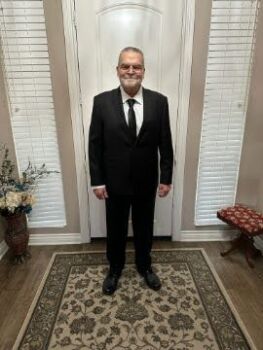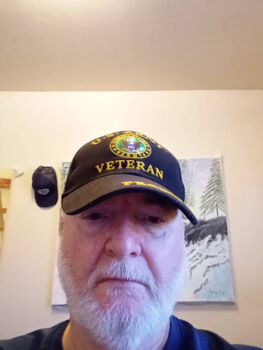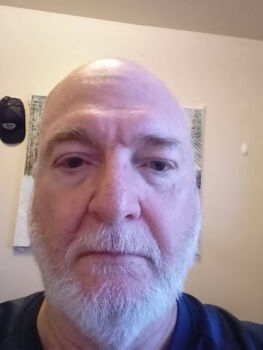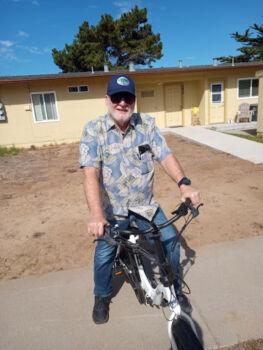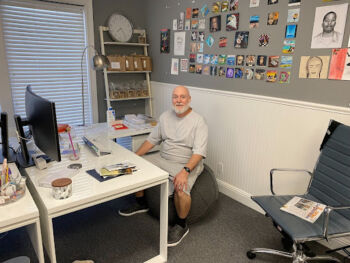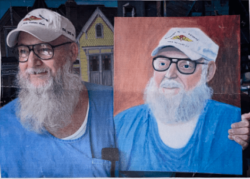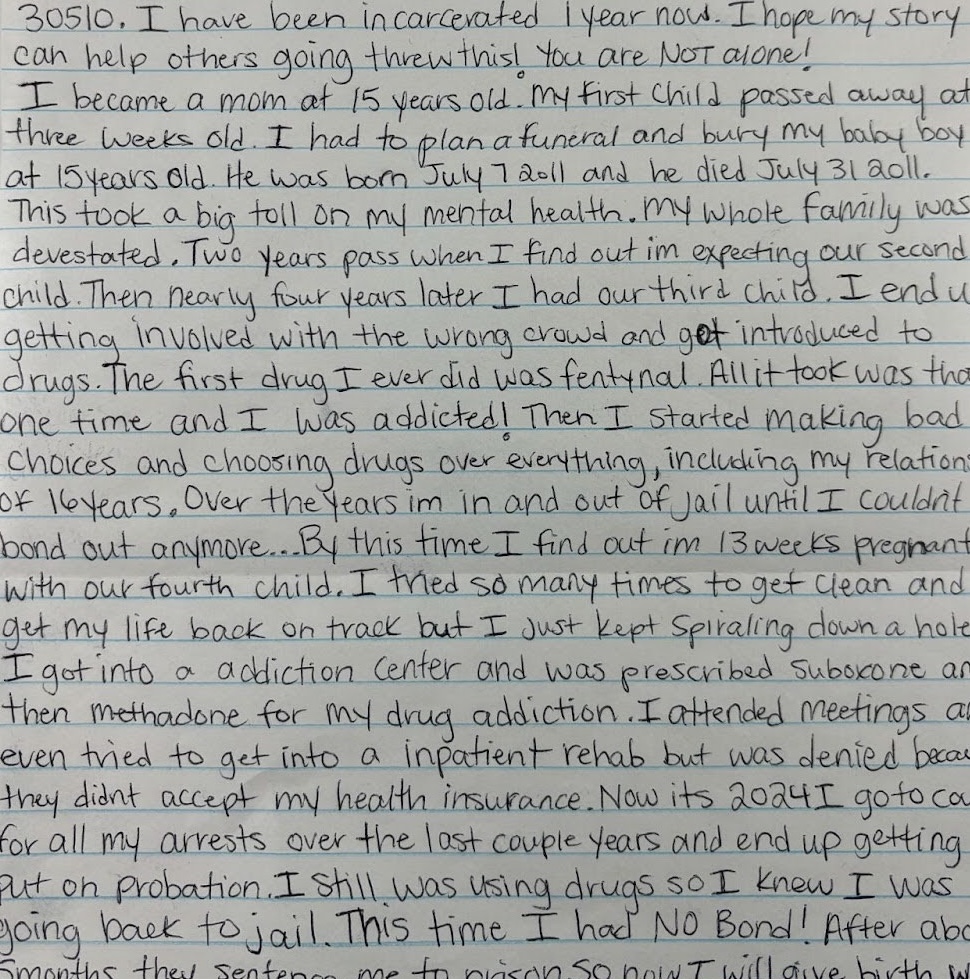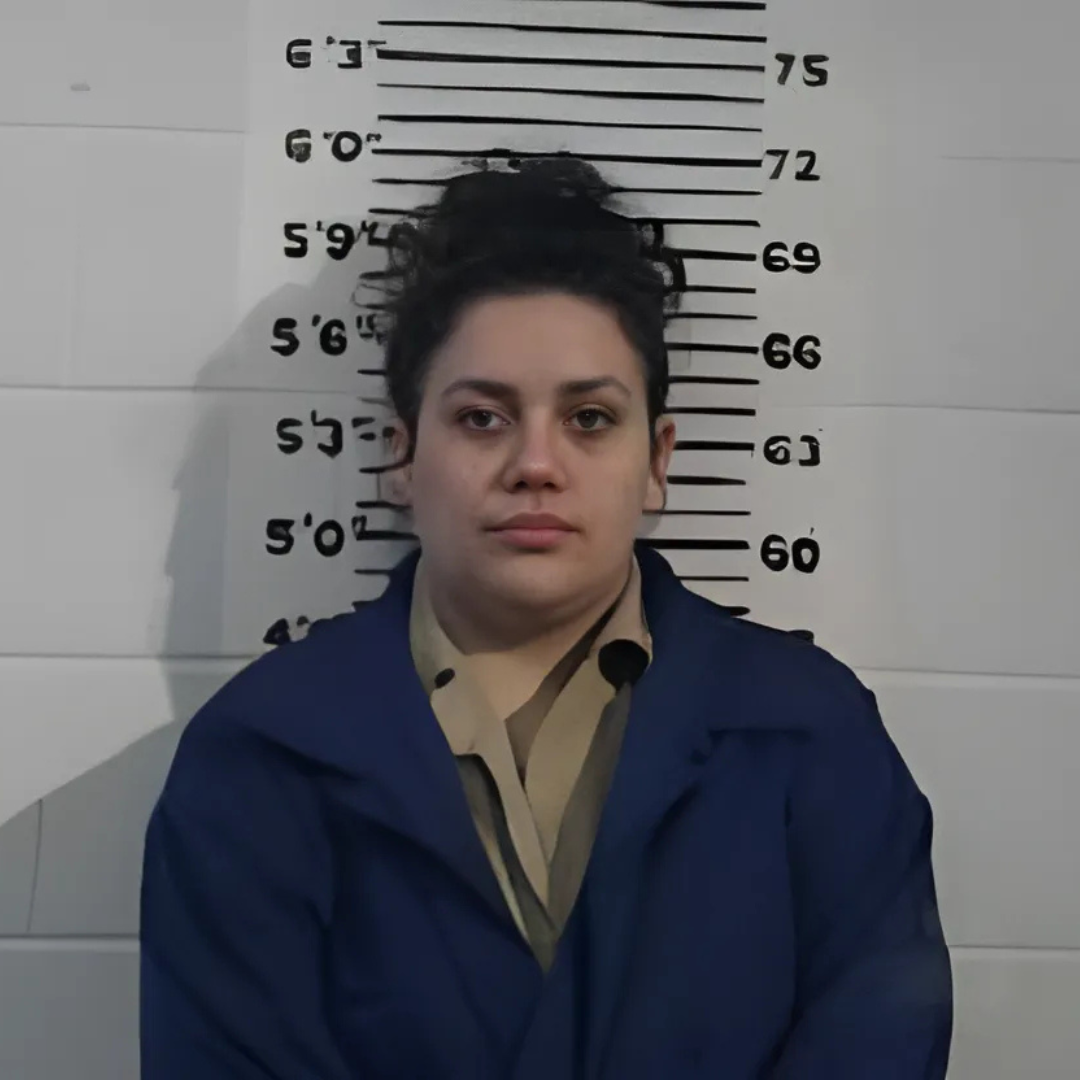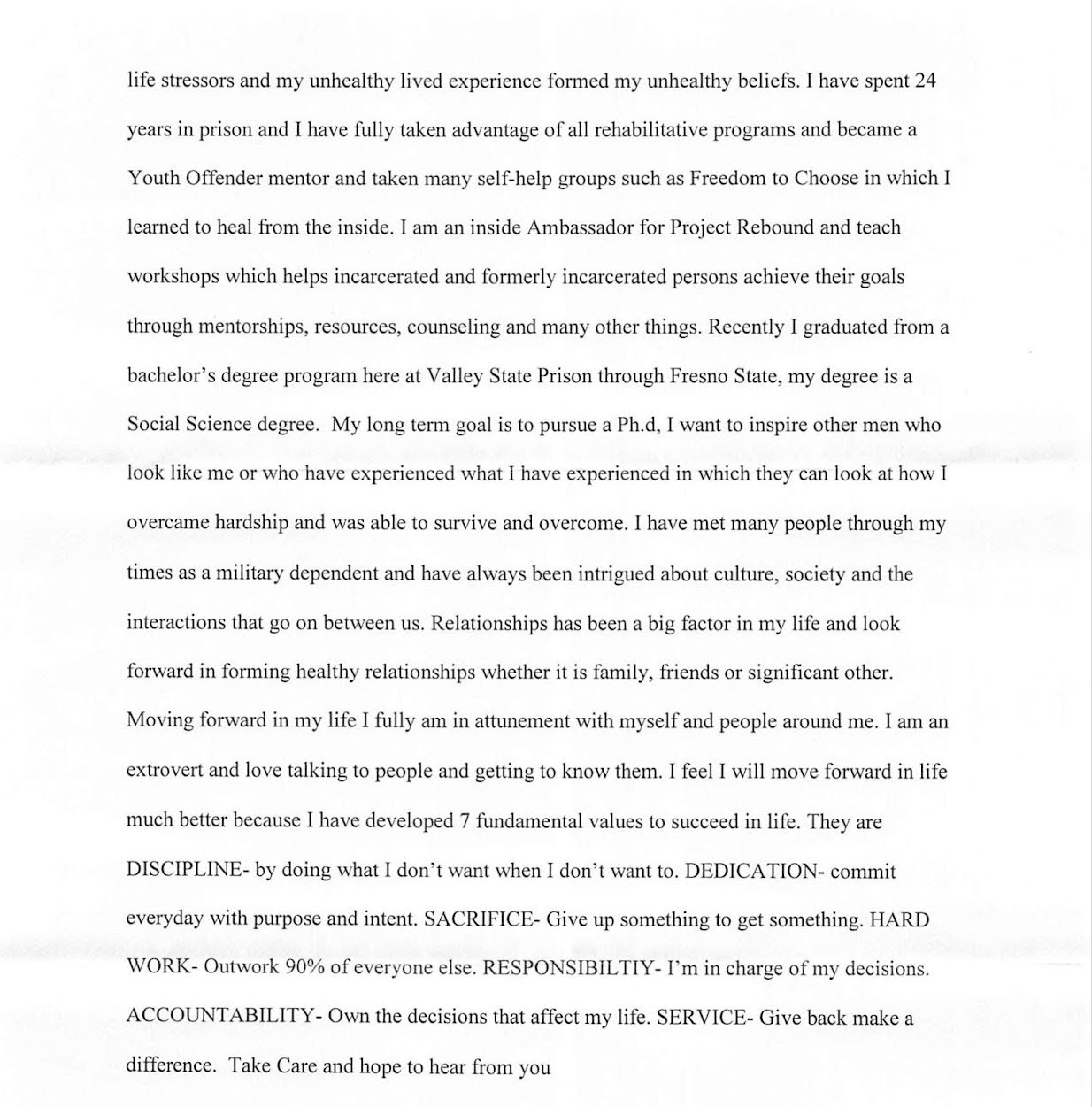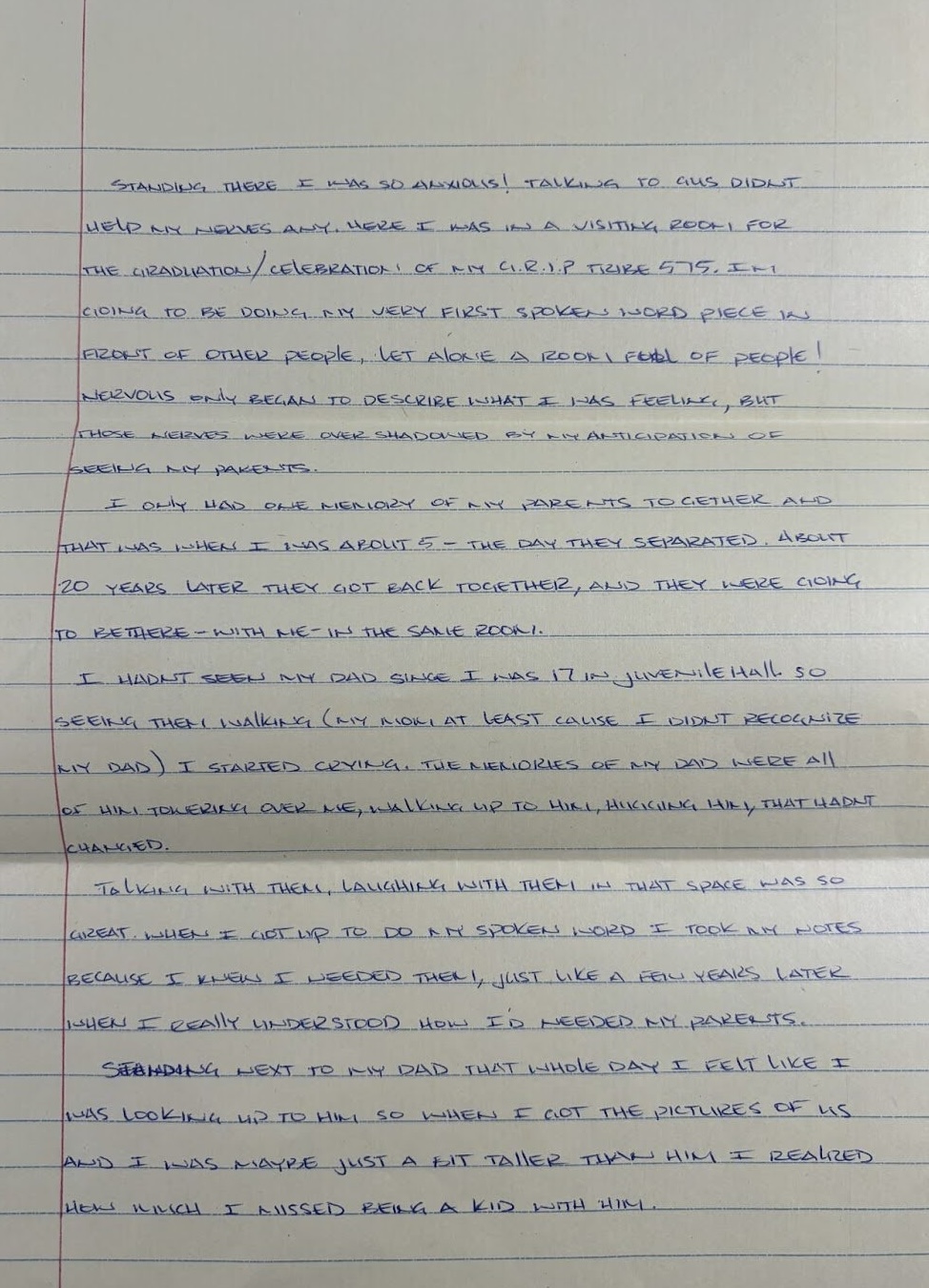Click here to listen to Diane’s interview with Paul, released after 22 years inside.
Watch Video:
Video Transcript:
Diane: I primarily want to hear about your release, how it’s been going over the last five months, and if there’s anything else you’d like to share.
Paul: There’s a lot I can talk about.
Diane: How many years were you inside?
Paul: Twenty-three.
Diane: Wow. I like to dive deep and talk about what’s going on with you.
Paul: I’ve learned a lot about social media. People have stolen my identity—my face and my information. I hate to say it, but they’re probably using it to lure others in. They tried to clean out my bank accounts. If my mom hadn’t had power of attorney on my accounts, they would have taken everything. Social media is a big deal.
I’ve lost a couple of hundred bucks here and there—stupid stuff you don’t even realize. Thankfully, I get most of it back because the bank reimburses it. My advice? Don’t get on social media until you’ve been out for a while and have had a chance to talk to some people. I don’t recommend jumping on right away. Facebook is the worst, but really, stay off any social media for at least a few months. I learned the hard way—it’s so stressful.
I’ve also got four daughters. Three of them are homeless, and one lives on the sidewalk. According to my parole stipulations, I’m not allowed to talk to them because they’re part of my wife’s immediate family. It’s insane, but I’ve abided by those rules. They’re still alive, thank God.
One of my daughters is doing well, but she doesn’t talk to me either. My mom’s been stressing me out about it since I got out, like I’m supposed to fix everything. But I’m on parole, and as Easy Johnson put it bluntly, if I try to talk to them and they don’t want to do what I suggest, that’s considered kidnapping, and I’d go right back to prison.
I’m done. If they want to reach out to me once I’m off parole, that’s fine. But I won’t violate parole for anyone. I’d give them my life, but I’ll never give anyone my freedom again. Ever. I’d rather take a bullet to the head.
Paul: Over here at the VTC—what do they call it? Boutique?
Paul: Anyway, I put on a pair of shorts that were too big and a shirt that was too big, but at least they didn’t have chocolate all over them this time.
Diane: Oh.
Paul: I also found out that CDCR completely misdiagnosed me. I have something called familial complex migraines. They can mimic strokes, heart attacks, and grand mal seizures.
Diane: Wow.
Paul: When I first got out, they thought I was having grand mal seizures because I was so stressed and had no outlets—no working out, painting, writing, Tai Chi, or yoga. I was fully conscious but went into a seizure. I couldn’t even move my eyes.
Diane: When was this?
Paul: About two or three weeks after I got out. Then, three or four weeks later, I had another one because the VA didn’t give me my meds like they were supposed to.
But I went to the best neurologist I’ve ever seen. She’s young—her parents are from Ethiopia. She’s brilliant, only 32, and looks like a kid, but she really took care of me. She took me off Sumatriptan, saying it was making my condition worse.
Diane: Really?
Paul: Yeah, she’s weaning me off Nortriptyline, and I’m on Propranolol now. If I have an attack—a convulsion or heart attack—I take a Ubrel V. She said my condition is 90% hereditary. I don’t know my father’s family, but it must come from him. My mom never had anything like this.
Your health is a big deal. Social media is a big deal. Money, though, isn’t as much of a problem here at VTC. You get at least half your food for free with a CalFresh card and the pantry. As long as you don’t keep the food too long, it’s still better than anything you’d get in prison.
Paul: Some people do stupid stuff, though—like start smoking again. Cigarettes are $14 a pack, and they have no money. It’s ridiculous.
I gave someone $40 once and felt bad afterward because I realized I just enabled him to buy cigarettes. People do stupid things with money, but I’ve done worse, so I don’t dwell on it.
Stress is the big issue. You deal with stress in certain ways in prison, but when you’re out, you have to find new outlets. If you don’t, stress will take over. You’ll hurt someone, fall out, get sick, or start using drugs or drinking. Something will go wrong. You need an outlet.
Paul: You’ve got to find ways to manage your stress because when you get out, it’s not the Candyland you imagine. All the things you’ve been avoiding for 20 or 30 years are waiting for you out here, and you have no idea how to handle them.
Paul: Take computers, for instance. I used to build them, but I don’t know anything about them anymore. Even the way people talk has changed. I got in trouble at college for calling someone “darling.”
Diane: Really?
Paul: Yes. I was called into the Dean’s office, along with the Human Resources Manager, because I said “darling” in front of the wrong person. I’d called her that a few times before, and it never meant anything—it was just a word. She had to temporarily move offices because hers was flooded, and I guess I said it in the wrong context. Suddenly, it became an issue.
Paul: And then there was another situation in class when I used a phrase. The meaning of language has completely changed over the last 25 years.
Diane: What phrase was it?
Paul: “Boys will be boys.” It doesn’t mean what it used to. Now, “boys will be boys” is interpreted as excusing things like college athletes gang-raping girls at parties—and colleges letting them get away with it. That’s the connotation now. I said it in jest, and my teacher practically tore into me. She even said, “Oh, never mind, you’re not a pedophile.” I just replied, “God, I hope not.”
Diane: That’s funny.
Paul: It’s not easy. I put my foot in my mouth all the time because I don’t understand what words mean to people anymore.
Diane: I hear you. You and I are the same age, and even though I’ve been out here every day, I’m still learning. I’m still trying to be sensitive and careful.
Paul: One of the first things I did when I got out was sign up for college. The courses I wanted were offered across the street from where I signed up, but they ended up sending me all the way down to the peninsula.
Paul: Thankfully, I’ve been able to get some of my friends from San Quentin to give me rides back and forth to MPC.
Paul: They even gave me an e-bike, but that would still be a 45-minute to an hour ride. I’m not doing that. It takes too much time.
Diane: But you’re down there on the beautiful Monterey Coast, with an electric bike to get around. That sounds pretty amazing.
Paul: It is great, but sometimes I walk so much I overdo it. I’ve walked up to 18 miles in a day, and the next day my knees are so bad I can’t even move.
Paul: You forget your age. You think you’re the same as when you went in, but you’re not. You’re 20 or 30 years older. Everything’s different. After walking in circles for years, you finally have the freedom to go anywhere, and you get carried away—only to realize you’re almost 70 years old, and your body can’t keep up anymore.
Paul: There’s a lot of stress. A lot of stressors. And you don’t think about it because you don’t know. You have no access to it. There’s no access to the enemy.
Diane: I mean, there’s no interaction out here. At least, in my opinion, they should have a work release. Someone like you would be out here, or with Carol, working in her office, doing art a couple hours a day, a few days a week. And then slowly grow and grow, actually putting you back into environments where you might encounter any triggers you had before. You need to be around people. You need to get triggered again so you can go back at night, think about it, and reflect on it. Slowly introduce yourself back into society. It’s not right.
Paul: When I was in prison, I never expected to get out. They gave me two life sentences. I had 55 to life at 44 years old. My first available parole date was June 6, 2056. I’d have been 99 that day. They have a sense of humor.
Diane: So tell us, how did you get it cut down to 23 years?
Paul: Elderly parole. Thank God for legislators. That’s what I keep hearing. Other people get out on different bills, too. If it hadn’t been for that elderly parole bill, I’d have died in prison.
Diane: And how did you become familiar with the bill?
Paul: I didn’t. The parole came up. I kept fighting for it because I heard about the bill, and they said, “Oh, you’re not applicable, you’re not applicable.” Then I got this little note on top of my cell door one day: “Oh, by the way, you’re late to go to the board. You’re going in three months or something, stupid.” I was like, “What?”
The closest I came to being ready to go to the board was when I had a commutation with Brown in 2017. When Newsom took office, there was nothing on the table, and water was gone. I was getting ready to go to the board for commutation because you have to go to the board for commutation, but I wasn’t ready. Not even close. When I went to the board the first time, they chewed me up and spit me out. It was bad. It was ugly.
Paul: CRI helped me a lot. CRI was California Re-entry. They were fantastic. I mean, VHV was great, but it doesn’t work on the issues you need to go to the board for. And really, you’re not getting out unless you can convince the board you’re supposed to get out. And CRI does that.
Diane: So, the legislature found you and just automatically set you up?
Paul: A year late, but I mean, late is better than never.
Diane: And then have the lawyer work on it and try to get a parole date.
Paul: I didn’t have any lawyer at all. I had no money for a lawyer. I just bided my time and started preparing to go to the board. And like I said, I wasn’t prepared. Three months is not enough time to get prepared for the board. It’s just not. Even if you get all your ducks in a row—your paperwork—your mind’s not focused right to deal with those people. They speak a whole different language.
Diane: Yeah, they’re looking for different things for sure.
Paul: Yeah, they have an agenda, and you need to clue into what that agenda is and meet their agenda. If you don’t, they’re not letting you go.
Diane: And what’s the best way to do that in prison?
Paul: Find the best groups. Find out the people that are going home and what groups they took.
Diane: Learn from them.
Paul: Yeah, absolutely.
Diane: Care support.
Paul: Like I said, I highly recommend CRI. VHV is great. It helped me with my PTSD, but wow. I started thinking about CRI and I got choked up.
Paul: Yeah, it’s fantastic. Colette is great, she really is.
Diane: She is wonderful.
Paul: She takes care of me, tough. She really does. She’s in Australia right now.
Diane: That’s right, with her elderly parents. She told me that. I’m going to visit her soon.
Paul: I think her dad, or maybe her mom—one of her parents passed away. I know her mom did. But she’s back visiting now.
Diane: So, tell us about your art now that you’re out.
Paul: I’ve only painted one painting. I went down to Monterey Pier and painted a sailboat out on the waves. I donated it to an auction she was hosting. I’m not sure what it brought in, but that’s the only new artwork I’ve created since I’ve been out. I just don’t have much time. I go to college twice a week for three hours each night. I have to retake a lot of the classes I took in prison for the parole board. My schedule is completely full. Plus, I need to get a Social Security card, a driver’s license, and pass the test. Your first three months out feel like running around like a clown coming out of a clown car.
Diane: My analogy is that you come out as a teenager, no matter how old you are. I like the clown idea, though.
Paul: You really do feel like that—like a clown. They send all these formerly incarcerated vets out like a herd of clowns. We’re lost, we’re clueless. We need guidance, like guide dogs for the blind because we’re blind to everything.
Diane: I remember back in the story you shared a while back. You started painting when you were released from the army the first time, right?
Paul: Yeah, in 1978.
Diane: Did it help you therapeutically?
Paul: It did. But then I got married, had kids, and all my in-laws were like, “You can’t make a living writing and painting. You should go into sales.” So, I went into sales. I was very good at it, but I hated it. That’s all I can say. I was very successful in sales—worked for insurance companies, Goodyear, and ran the biggest independent wholesale retail tire outlet in Orange County. But you’re only as good as your last sale. You can be the top salesman one week and the next week, everything could collapse.
When I make a painting or write a book, it’s there forever. I’ve received awards for being the best salesman, but it meant nothing because the next week, you could be struggling again. Sales are thankless.
Diane: I just wondered how you can be so frank here.
Paul: I’m just being honest. I don’t candy-coat anything.
Diane: Well said.
Paul: I was good at it, but I didn’t like it. It was just too thankless.
Diane: Did painting help you therapeutically in prison?
Paul: You know what? I think it did more than CRI. It really mellowed me out. I was painting the whole 14 years I was there. I also did yoga for 11 years and Tai Chi for nine, but they eventually went away. When the yoga instructor got pregnant, no more yoga. When the Tai Chi instructor died of COVID, that was the end of Tai Chi. But art never went away. Even when the instructors left, painting was always there. Writing was always there, too. It was very cathartic.
Diane: That’s great. So, what are you doing now? What’s your job?
Paul: I have two more weeks of college left. I’ve signed up for a painting class and a Photoshop class for next spring semester.
I’ve got 100% VA disability after 48 years.
Diane: That’s beautiful.
Paul: Yeah, it is. So I’m going to get a car next month. I’m also supposed to go see my mom back in central Pennsylvania around Christmas. We’ll see if that happens. I need to get it approved by the parole board first.
Diane: Let’s put all those good vibes out there so you can give her a hug.
Paul: Yeah. It’s a complicated relationship, to say the least. But she’s the only mom I’ll ever have, so I have to love her even if it’s from a distance.
Diane: I can relate to her when she said that she wanted you to have that connection with your daughters. I have kids, and I’m always checking in to make sure they’ve called or connected.
Paul: Yeah, but she stressed me out a lot. And I should have known better, but I haven’t had to deal with that for 23 years. When she stopped talking to me in prison, it didn’t bother me because I wasn’t talking to anybody anyway. But out here, I feel like I’m supposed to do something. I can’t do anything. I’m on parole.
It’s hard to adjust because you’re assimilated so quickly into thinking you’re free, but you’re not. This is a zero-level prison. Parole is zero-level prison. You still belong to the state of California.
Diane: What’s the most controlling part of your parole?
Paul: What do you mean?
Diane: Like, is it not being able to travel more than 50 miles? Is it having to check in or see who you’re associating with?
Paul: Oh, all of that. I can’t travel to San Luis Obispo to try to rescue my daughter from the streets. I can’t leave the 50-mile zone. I can’t even talk to her because she’s an immediate family member of my wife, who saw me commit my crime. It’s all part of the system.
Diane: Life is a zoo.
Paul: In your own parole, life is a zoo. You’re surrounded by dangerous animals that can put you back in a cage.
Diane: That’s crazy. And your daughter was there and saw you commit your crime?
Paul: No, my wife was. But that’s just how the parole board operates. They’ll do anything they can to trip you up. And to be honest, it was for my own good. Emotionally, I wasn’t ready to deal with my daughters, and I’m still not. The thought of going out there and seeing them with drug dealers and pimps—it would push me to hurt someone. I can’t do that because it would be too easy to fall back into that criminal life. I can’t live another day in a cage.
Diane: Yeah. You make it so relatable, and I understand that. What is your dream job?
Paul: I want to get a Giclee Mesa printing machine to make copies of my art and sell it online. The machine costs about $50,000, but once I can sell my own work, maybe I’ll branch out and start selling other people’s art, too.
Diane: Could you partner with someone who already has one?
Paul: I could. And I might do that just to learn the process, but I want to wait until after I’m off my first-year parole before I dive into anything that ambitious.
Diane: Because that’s pretty ambitious.
Paul: I’ve also got book manuscripts I’m trying to get an agent for and find a publisher. Between my full Social Security benefits, my full 100% VA disability, and a small pension from Goodyear, I think I can set myself up financially if I can sell canvas prints of my artwork and publish a couple of books.
Diane: Yeah, well, the first priority is keeping yourself healthy, right?
Paul: Definitely. I’ve had two severe convulsions since I’ve been out. I was lucky the second time because my roommate was a trained EMT. Unfortunately, he could never return to that work because of a drug charge. He might explore other paths, though—maybe medical billing.
The first time, one of the guys used an outdated ’70s technique by putting a pen in my mouth when I had a convulsion. I bit down, broke the pen, and broke my tooth. That was a mistake—outdated and unnecessary. But God bless him, he was trying.
The other guy, who served in Afghanistan, said, “Man, take that out of his mouth. You don’t do that.” But by then, it was too late. I broke my tooth, and now I’ve got to get that fixed. I’ve been bouncing from dentist to dentist because the first dentist canceled my appointment the same day. He called me back a week later and asked, “Are you coming in?” I couldn’t believe it. He told me to find another dentist, so I did.
It’s been a frustrating process, but at least I’m getting it taken care of.
Diane: Tell me about your living situation now.
Paul: I have my own room now. When I first got out, I was living in the living room because there wasn’t enough bed space. A couple of guys didn’t get out the way they were supposed to because they weren’t really looking hard for housing—they were too comfortable. I’m just putting that out there. I’m not going to mention any names, but there was some procrastinating laziness. So, yeah, I had to sleep in the living room.
On top of that, my parole agent gave me one of those stupid little devices to track me. He put one on my leg, and I couldn’t sleep because it was cutting off my blood circulation. It was still better than being in a cage, though.
Diane: So now you have your own room.
Paul: I didn’t finish with the device yet. I had a convulsion and had to go to the MRI machine, so they cut it off. That was great.
One of the guys living in the house said, “You did that on purpose,” as if I were faking. I’m not that good an actor.
Diane: So did they put one back on you?
Paul: No, absolutely not. Because what if I have another convulsion? They’d just have to cut it off again. It was a big deal— the hospital got all over my parole agent for it. He was upset because it was a weekend, a Sunday, or something. He later told me, “If you ever have one of these devices on your legs and you need an MRI, just let them cut it off. You don’t need to call me.”
I’ve got a condition—it’s hereditary. Thank you, Dad. I wouldn’t call him that if you gave me a million dollars, though.
Anyway, yeah, that’s where I’m at. Right now, I’m doing well. This semester’s coming up, and I’ve got a couple of weeks off. I’ve learned a lot about everything—college, language, and keeping my mouth shut until I know the words I’m speaking.
I’ve learned a lot in the last five months. My caseworker was amazed at how far I’ve come. I’m actually ready to move out. I get a car next month, I’ve got money in the bank, and I’m ready. I’ve got my college ID, my driver’s license, my social security card, my social security payments, my VA disability, and my bank accounts. Everything a real human being is supposed to have—well, except that I’m on parole.
Diane: Your number is going to come up.
Paul: Yeah, I probably shouldn’t say that because that’s exactly what they’ll do next. They’ll check you in jail and hit you with a UPC ring.
Diane: That’s funny stuff.
Paul: It could happen.
Diane: They could totally put a chip in you.
Paul: Well, no, they already threatened to do that, but Congress stopped them. They had chips about the size of a grain of rice that could track wherever you were. They used them in dogs. I had one in my hunting dog—she used to run off all the time. But yeah, they were going to put them in prisoners, and Congress stopped it in the early 2000s. Thank God.
Diane: I would love to maybe somehow incorporate our conversation online. Tell me about Humans of San Quentin or how that was for you inside, or what you think of the organization, whenever you want to share.
Paul: I think it’s great that you’re able to reach out to so many people. You don’t just reach out to artists—you reach out to anyone with a story. It’s not just “Humans of San Quentin” because you have all these humans all over the place. I was reading about the people you’ve featured, from New York to others who’ve never been to prison. It’s diverse and covers a wide variety of experiences. Almost anyone can find someone they can relate to through these stories, even if it’s not just Humans of San Quentin.
But the stories in Humans of San Quentin are unique. People have different experiences, and not every story resonates with everyone. My—what did you call it—frankness might not thrill some people, especially those on the other side of the issue I’m addressing.
I was working out at Montage today. After I finished lifting weights, I went swimming and ended up next to this great big guy, blond-haired, a retired Marine. We started talking, and I mentioned San Quentin. Turns out, he was the associate warden at Salinas.
Diane: Oh, holy crap.
Paul: The current warden is retired too. I was just talking to the retired warden last month down at Monterey Pier. Muhammad, who was my housemate at the time, had a relationship with him in prison, and we ran into him at the pier a couple of times. Life is very ironic.
Diane: It really is.
Paul: Yeah, I mean, I’m swimming with an associate warden, and I’m down at the pier talking with the warden. It wasn’t San Quentin, but it was still weird.
Diane: Yeah, they’re all around. They’re the same kind of fish in the sea, right?
Paul: It is. It’s just weird. But now I see them as real people, and they see me as real people. Before, it would have been confrontational because we were on opposite sides. It’s like the Pink Floyd song Us and Them.
Diane: That’s the right analogy.
Paul: Yeah, “us and them” is the way it is in prison. That’s how you’re trained to think, and that’s how they’re trained to think. It’s hard to change those dynamics.
Diane: It’s changing though. We just had a big meeting inside with our team. They started this back in 2018. The tide is changing.
Paul: Well, it might be the administration changing, but trying to get the officers to change and trying to get the prisoners to change—that’s a whole different thing. The social warden was telling me about running into the warden at the pier. He said they made him retire because he wasn’t the right person for the new model of being friendly to prisoners. But he’s dealing with a bunch of Norteno gang members who aren’t trying to listen. They’re not trying to program. They’re not trying to get out of prison. They just want to be at war with everybody.
Paul: You’re going to run into that. You’re not going to affect everybody because you want to do something. It’s just the way it is. If somebody’s ready to program and ready to get out of prison, they’ll let you know. And they’ll also let you know if they’re not.
Diane: I was on the wards advisory committee, and he said exactly that: we’re all at different points in our development. It’s a matter of who’s getting there. And I think if you model it—I’m obviously a super positive person—but change will come. We’ve got Lieutenant Barry as our PIO. She’s doing a fantastic job talking to those correctional officers. They’re doing well. But you’re right—there are over a hundred thousand correctional officers in California. That’s a big thing. Rehabilitate those people.
Paul: Until you do that, you’re not going to get the gang members to ever listen. They know it’s bullshit. It doesn’t matter what the administration says. The officers aren’t going to listen because they belong to the CPOA. The CPOA actually runs the state of California.
Diane: For those who don’t know the CPOA—
Paul: CPOA is a union. They’re very politically powerful. The strange part is they’re not a very wealthy union, but they control whole communities because entire communities rely on certain prisons just for their survival. If you start diminishing that, you’re eliminating those communities.
Paul: Life is about change. They need to change their agenda because they’re dragging along some dead DNA.
Diane: Total fact. So, to wrap us up, is there anything you want to share that I didn’t cover or get out there? We’ve got an audience, and this will go up on YouTube.
Paul: I’ll reiterate—you need an outlet for your stress. Your stresses won’t be the same as the ones I mentioned, but you’ll find stress. I haven’t met anyone who sleeps through the night, whether they have PTSD or not. Some guys can’t sleep until two or three in the morning. Some guys only sleep an hour at a time. Other guys keep everybody awake because they have sleep apnea and snore like pigs. I had one of those.
Paul: But you know what? I’m not living in a cage. I’ll take it. I don’t have to turn sideways to walk in and out of my door. I don’t have to close the bars behind me. I don’t have to smell another man’s farts above my face. I don’t have to try and convince somebody to stop peeing on the wall. The list goes on and on.
Diane: So, what would you say to someone today who asks, “Why should I offer Paul a job? He’s a violent man. He’s been in prison for 23 years. Why should I give him a job today?”
Paul: Because of life experiences and the proof of change. Your life is proof of change. The proof’s in the pudding. When you have somebody say they don’t have my life experience, looking for a job—you don’t know what you’re getting. You know exactly what you’re getting with somebody like me. I know how to control my impulses. I’ve got training. Hell, I’ve trained other people. I’ve facilitated all kinds of groups. I’ve taught people how to paint.
Diane: Yeah, you’ve done the hard work. I’ve seen it. If I had the money, I’d hire you.
Paul: Well, thank God the VA and the company are finally paying me to shut the hell up, which I can do. That’s an easy job.
Diane: And there’s pictures behind me that you donated right behind me.
Paul: I see the little bluebird right behind your right ear.
Diane: Oh yeah, the bluebird and the other one.
Paul: Yeah, the honeybee.
Diane: We sold them. Where’s the other one? Is it up there?
Paul: Yeah, it’s to your left now.
Diane: These two are supposed to be together.
Paul: Yeah. I offered to do another painting for you if you need it for some type of auction.
Diane: I’ll force you to paint again. You’re so awesome.
Paul: No, I’m going back to painting. I’m taking a painting class at MPC next semester.
Diane: Oh, good.
Paul: So in January, I’m going back to painting. I’ve already bought paints, brushes, and canvases.
Diane: Awesome.
Paul: I just haven’t started painting yet. And Colette sent me a whole set of acrylics.
Diane: Oh cool.
Paul: But I bought my own oils.
Diane: Well, we’d love another one whenever you’re ready to send it to us.
Paul: I could have Marcus drop it off. He stops by to see you guys all the time.
Diane: Yeah, he’s great.
Paul: With Colette, I had to mail it.
Diane: Right? And that’s scary when you have to mail it out of the prison. You never know whose hands it’s going to end up in.
Paul: Oh, I mailed it out from here. I painted her a painting of the sailboat and mailed it to her. I guess I don’t care what she got for it. It was just my way of doing something. At the time, I was broke.
Paul: I should be buying a car and getting on my feet here pretty soon. I don’t know how long it’ll be before I proceed with the Gistly Musa. I want to get at least a year of parole under my belt before I start doing any entrepreneurial-type stuff.
Paul: The weird part was I started looking into it, and I got all these emails and text messages trying to get me to use their company to sell my work. Yeah, I’m not ready. I can’t reach out to these people and say, “Hey, I’m on parole. I don’t have a year of parole under my belt, and I’m not working with you right now.” I’m just trying to get my life together.
Diane: You’re so smart though. Twenty-three years to shake off and implement a new life is a lot.
Paul: Oh, I overdid it anyway, jumping right into college as soon as I got out of prison. That was kind of crazy.
Paul: It’s been a wild ride. All the homework is done over the internet on what they call Canvas. That slowed me down so hard. The first couple of months of homework, I didn’t complete because I had no idea which button I was supposed to push. It was so bizarre. I didn’t even know I wasn’t doing the homework.
Paul: Yeah, and that was kind of bold, signing up for college when I’d only been out of prison a couple of weeks. Whatever. I made it through it.
Diane: And look at you now. Five months, you’re shaking it off.
Paul: Yeah, I got digital photography, introduction to digital photography, and digital photography out of the way. So I can take photographs of my work now, put it through a music program, and sell my prints instead of trying to get thousands of dollars for a painting. I get a couple hundred dollars for a print.
Diane: That’s awesome.
Paul: Yeah, I don’t know how many other people do it.
Paul: I’ve seen ads for this place called Etsy. They sell people’s work that way. I can apply to them if they don’t want to do it. I’ll figure it out.
Diane: Etsy is a marketplace where you just sign up yourself, and you’re the one they contact. I’ve ordered a lot from there, and you manage it. So, it’s basically a site for you to put your wares.
Paul: So I could get them to make Gistly muses for me then?
Diane: Well, no, they’re each individual.
Paul: I would have to find somebody who does music.
Diane: Yes, they already have people. Then, if I want it, I go on Etsy, find you, place an order, we talk, and you get it for me.
Paul: Okay, so they’re just the middleman. They don’t do anything except take a moment. It must be nice.
Diane: I can’t imagine what they’ve had to go through to get that thing up and running and keep it going.
Paul: Well, yeah, they know all about the internet, which I don’t, but I know art. I’ve got a whole room full of paintings back at my mom’s house—fourteen years’ worth. I’ve painted over a thousand paintings, and I probably only have about a third of those left. But that’s just a drop in the bucket.
Diane: Oh, that’s something to say right there.
Paul: Yeah. I’ve got a couple of books that are almost complete, just need to get them published.
Diane: That’s awesome.
Paul: Yeah.
Diane: Whatever happened to that painting of you holding your self-portrait? What happened to that one?
Paul: That’s at my mom’s house. I’ve got paintings all over the world, actually. I’ve got one hanging in London.
Diane: You told me that!
Paul: At Derby Law College, in their library. It’s a painting of one of my mother’s ancestors from the 1800s.
Diane: You’re such a gifted man. Thank you for all you do.
Paul: Thank you.
Diane: Let’s sell those things and get them out there, especially if you go to your mom’s house next month. Please take pictures. Take pictures of you with them.
Paul: I bought a $780 camera. At the end of class, I went through the whole class with a borrowed camera from MPC. They let me borrow it. At the end of the class, I said, “You know what? They’re not gonna let me take this back to Pennsylvania. I better buy a camera.” And that was right after the VA blessed me, so it all worked out.
Diane: Yeah, that’s great. I need to make a trip down there to see you. Marcus is down, Jenny… There are just so many great people that have been paroled down there.
Paul: Oh, they’re a bunch of angels. They really are.
Diane: I know, you guys are so lucky down there. I really want a house just like that here in Marin County, a Humans of San Quentin transitional home. Love it. There are mentors for me there.
Paul: Sounds like an excellent goal.
Diane: Yeah, right? I have lots of pie-in-the-sky ideas.
Paul: But aren’t we all in a perfect world?
Diane: Yeah, every day. Alright, well, thank you for sitting down with me today.
Paul: No problem. Sorry, it took so long.
Diane: That’s okay. You have that much more of a story to tell, right?
Paul: Absolutely. I got through all that. We could’ve done this earlier, and I could’ve been in the midst of being all stressed out, fidgeting in my seat.
Diane: Well, don’t be a stranger. Hopefully, I’ll see you up here or down there, and I want to keep hearing about your successes and ups and downs.
Paul: Absolutely. You have a blessed day, dear. I can say that, right? I can use the word “dear” without getting in trouble.
Diane: You can say: I’m 67, and I grew up in the military. You can say anything you want.
Paul: Okay, alright. You know what? I’ll let you turn this off because I have no idea how to do it.
Diane: Okay, take care. Happy Thanksgiving.
Paul: You too. Bye bye.


